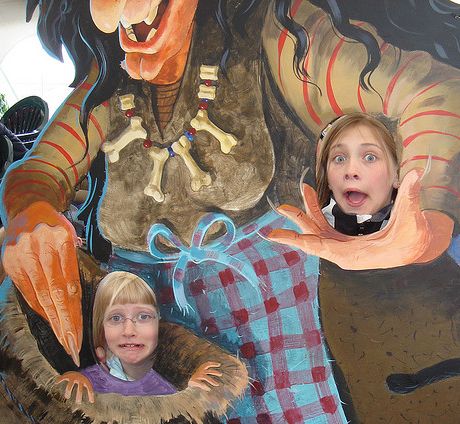
Iceland
冰島
Icelandic children were once told to behave or they would be eaten by a pair of ogres that lived up in the hills. The characters were considered to be so terrifying that a public decree banned the use of these stories to scare children into behaving.
冰島的孩子們?cè)?jīng)被告知,如果表現(xiàn)不好就會(huì)被住在山上的食人魔夫婦吃掉。由于“食人魔”形象太過(guò)恐怖,冰島頒布了一項(xiàng)公開法令,禁止用這個(gè)故事來(lái)嚇唬不聽話的小孩子。
Instead of talking about the ogre couple, parents instead started telling stories of the ogre’s children, the Jolasveinar, who are bad, but not nearly as evil as their parents. Jolasveinars were originally said to play tricks on people and steal food, but now they are responsible for giving gifts to children. Bad children don’t get presents though, they get potatoes or other items that remind them that they weren’t forgotten, but don’t deserve real presents.
父母?jìng)儾辉僦v食人魔夫婦,轉(zhuǎn)而講他們倆的孩子(Jolasveinar)。食人魔小孩很壞,但不像他的爸媽那樣邪惡。據(jù)說(shuō)食人魔小孩經(jīng)常捉弄人們,還偷食物。但他們現(xiàn)在負(fù)責(zé)給孩子們發(fā)禮物。壞孩子們雖然得不到禮物,但他們得到土豆或者其他物品,這是用來(lái)告訴他們,他們沒(méi)被遺忘,但不值得得到真正的禮物。
